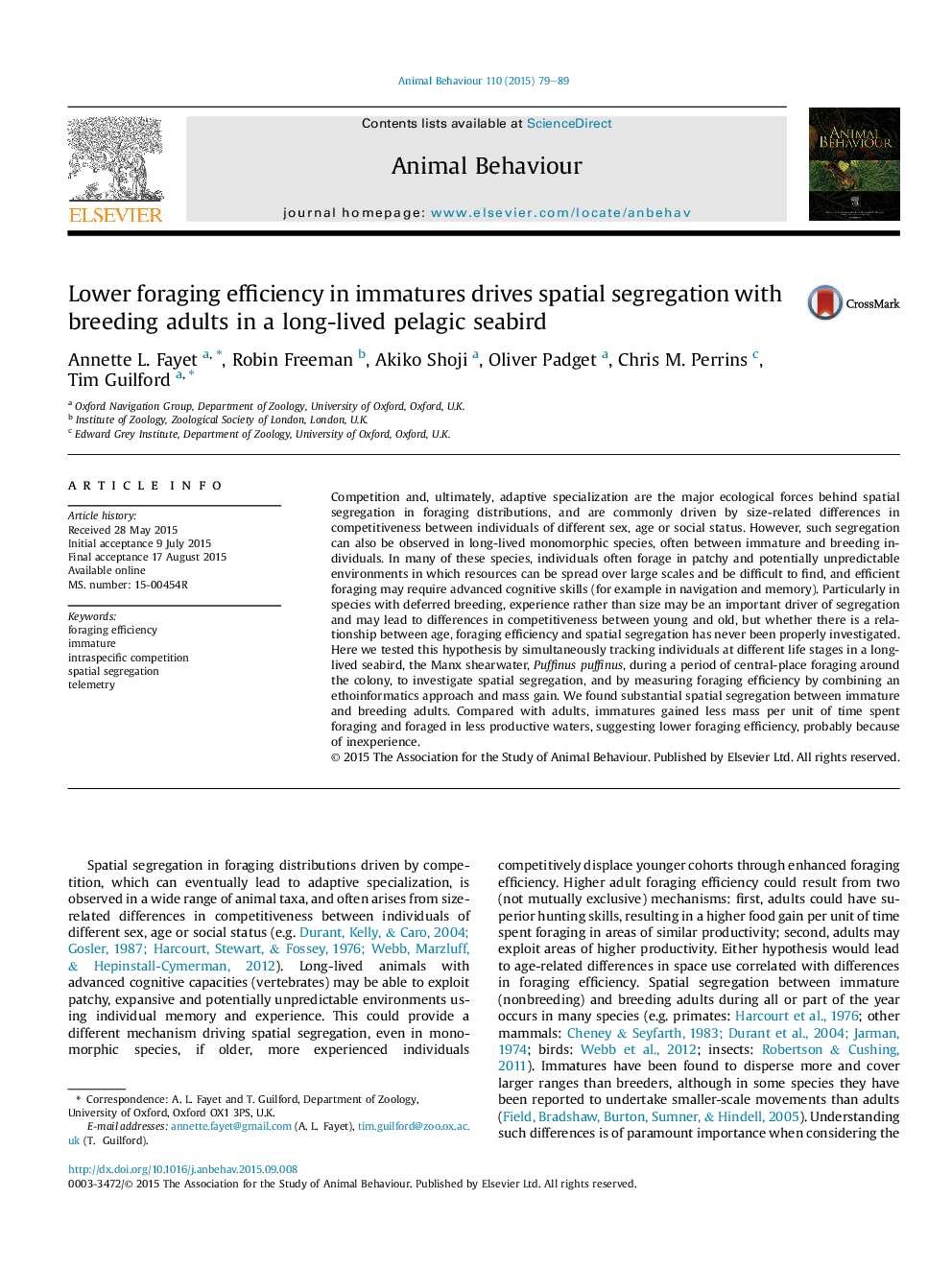| کد مقاله | کد نشریه | سال انتشار | مقاله انگلیسی | نسخه تمام متن |
|---|---|---|---|---|
| 8489508 | 1552218 | 2015 | 11 صفحه PDF | دانلود رایگان |
عنوان انگلیسی مقاله ISI
Lower foraging efficiency in immatures drives spatial segregation with breeding adults in a long-lived pelagic seabird
ترجمه فارسی عنوان
کاهش کارایی علوفه در انقراض جداسازی فضایی با پرورش بزرگسالان در طول دریاچه دریایی طولانی مدت
دانلود مقاله + سفارش ترجمه
دانلود مقاله ISI انگلیسی
رایگان برای ایرانیان
کلمات کلیدی
راندمان غذا، نابالغ، رقابت داخلی جدایی فضایی، تله متری
موضوعات مرتبط
علوم زیستی و بیوفناوری
علوم کشاورزی و بیولوژیک
علوم دامی و جانورشناسی
چکیده انگلیسی
Competition and, ultimately, adaptive specialization are the major ecological forces behind spatial segregation in foraging distributions, and are commonly driven by size-related differences in competitiveness between individuals of different sex, age or social status. However, such segregation can also be observed in long-lived monomorphic species, often between immature and breeding individuals. In many of these species, individuals often forage in patchy and potentially unpredictable environments in which resources can be spread over large scales and be difficult to find, and efficient foraging may require advanced cognitive skills (for example in navigation and memory). Particularly in species with deferred breeding, experience rather than size may be an important driver of segregation and may lead to differences in competitiveness between young and old, but whether there is a relationship between age, foraging efficiency and spatial segregation has never been properly investigated. Here we tested this hypothesis by simultaneously tracking individuals at different life stages in a long-lived seabird, the Manx shearwater, Puffinus puffinus, during a period of central-place foraging around the colony, to investigate spatial segregation, and by measuring foraging efficiency by combining an ethoinformatics approach and mass gain. We found substantial spatial segregation between immature and breeding adults. Compared with adults, immatures gained less mass per unit of time spent foraging and foraged in less productive waters, suggesting lower foraging efficiency, probably because of inexperience.
ناشر
Database: Elsevier - ScienceDirect (ساینس دایرکت)
Journal: Animal Behaviour - Volume 110, December 2015, Pages 79-89
Journal: Animal Behaviour - Volume 110, December 2015, Pages 79-89
نویسندگان
Annette L. Fayet, Robin Freeman, Akiko Shoji, Oliver Padget, Chris M. Perrins, Tim Guilford,
